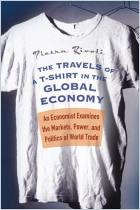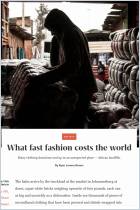Acesse a sua conta getAbstract para obter o resumo!

Acesse a sua conta getAbstract para obter o resumo!
Dana Thomas
Fashionopolis
The Price of Fast Fashion and the Future of Clothes
Penguin Press, 2019
Sobre o que é?
Fashion journalist Dana Thompson offers a riveting investigation into the impact of fast fashion.
Recommendation
American journalist Dana Thomas may shock you and make you reconsider how you choose your clothes. She reports that the exponential growth of the fashion business in the last three decades has devastating long-term environmental implications. Thomas’s in-depth descriptions of new technology, materials and processes also provide a glimpse of the world to come. This book is a must for anyone associated with the fashion industry, but is also a provocative examination of how the industry is struggling to transform itself even as current practices make the status quo unsustainable. You may never look at a pair of jeans the same way again.
Summary
About the Author
American journalist Dana Thomas also wrote Fashionopolis (Young Readers Edition): The Secrets Behind the Clothes We Wear; Deluxe: How Luxury Lost Its Luster and Gods and Kings: The Rise and Fall of Alexander McQueen and John Galliano.




















Comment on this summary